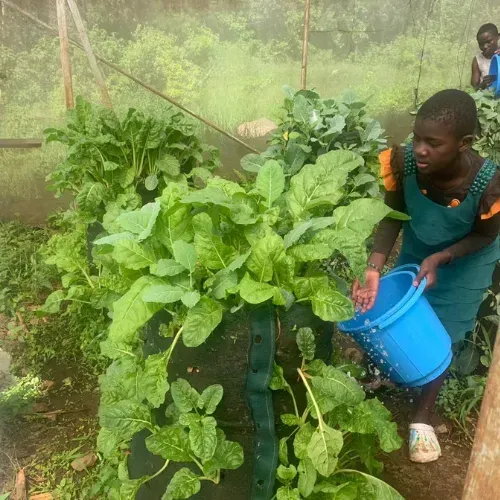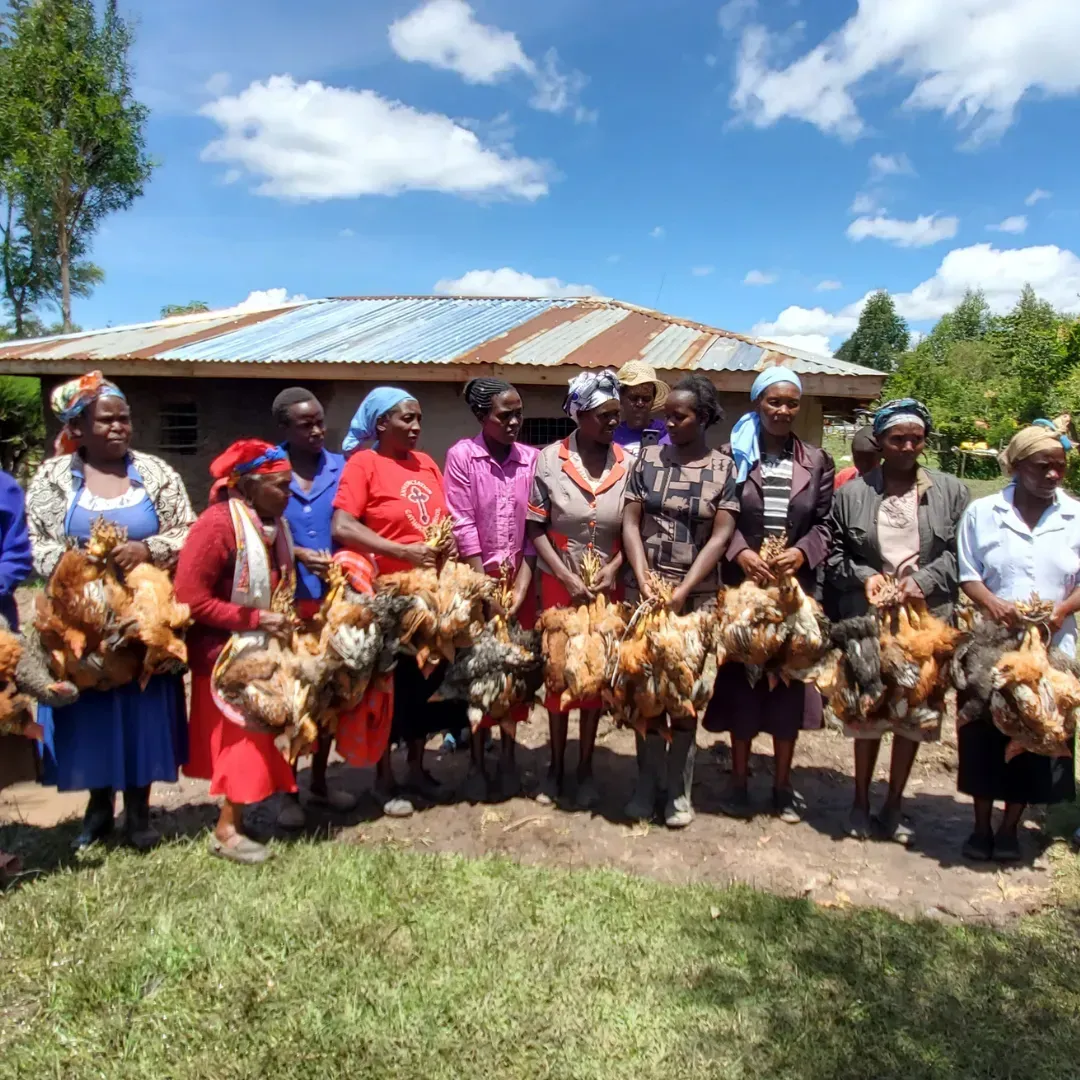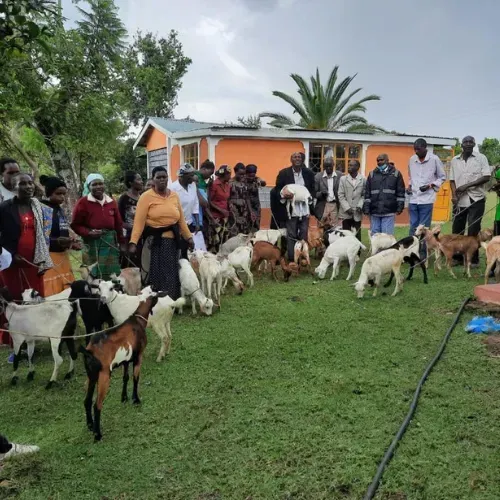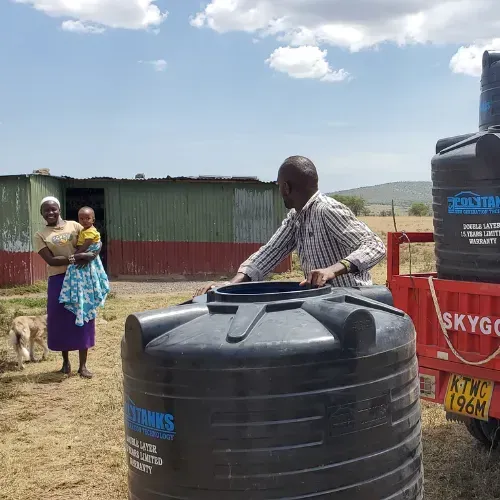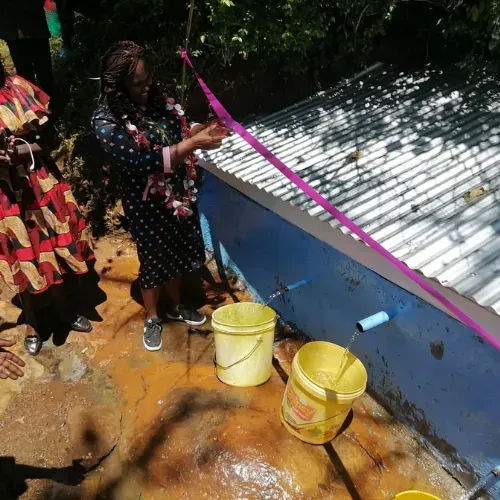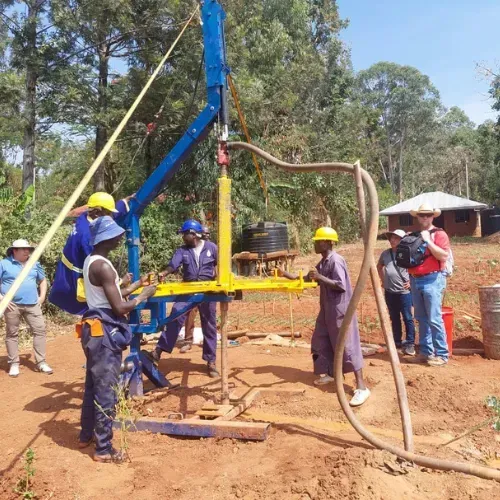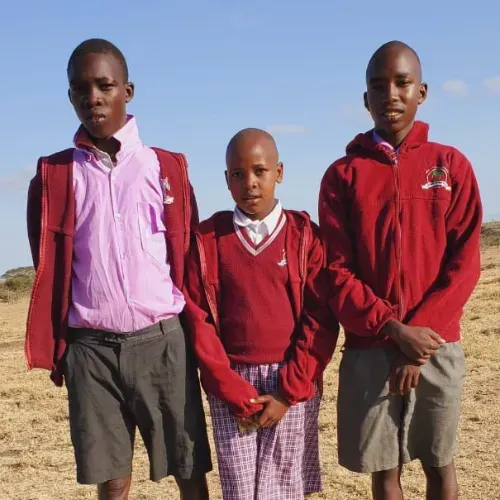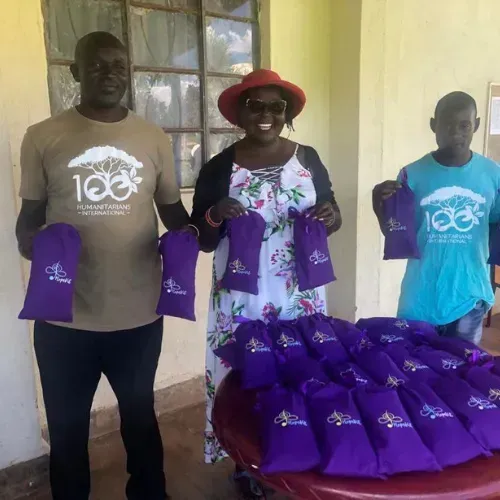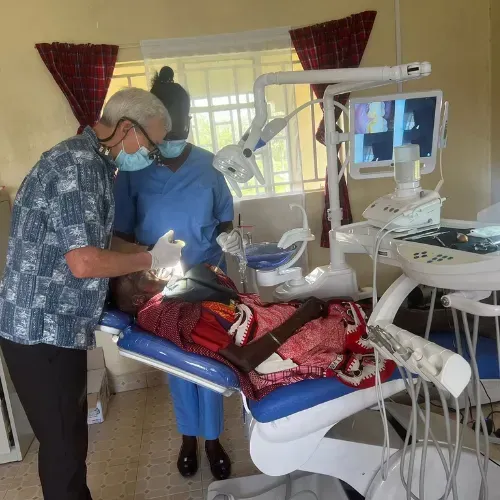Our Programs
All of our projects focus on helping families achieve self-reliance. We are in this to change the next generation and teach them skills that will allow them to choose a better life.
Sustainable Food
The Benefits of a Garden Tower:
✔️Nutritious, Cost-Effective Food: The Garden Tower allows families to harvest 3-5 meals per week of fresh, organic vegetables from their backyard. This reduces food costs and provides a constant source of nutritious produce, helping to ease the financial burden of poverty.
✔️Income Generation: Families can sell surplus vegetables grown in the Garden Tower, creating an additional source of income. This new revenue stream provides financial stability and opportunities for a better future, helping to break the cycle of poverty.
✔️Water Efficiency and Savings: The Garden Tower uses 30% less water than traditional gardening methods, making it a water-efficient solution. This conserves precious water resources and reduces water bills, which is especially beneficial in regions with limited water availability.
The Benefits of a Chicken Business:
✔️Nutritious Food and Supplementary Income: Raising chickens provides a steady source of eggs, ensuring healthier meals and reducing food expenses for families. Selling surplus eggs generates additional income, helping families save and invest in other income-generating activities.
✔️Reliable Income from Meat Sales: Chickens offer a reliable source of protein when raised for meat. Selling poultry products, which are often in high demand, provides a steady market and additional income, aiding families in surpassing the global poverty line.
✔️Low Maintenance and Skill Development: Chickens are low-maintenance and require minimal space, making them accessible for families with limited resources. Engaging in a chicken enterprise teaches valuable skills in animal husbandry, business management, and budgeting, empowering families to apply this knowledge to other ventures and improve their economic prospects.
The Benefits of a Goat Business:
✔️Nutritious Milk and Income: Donating a goat to a family in Kenya provides a steady supply of milk for consumption and sale. This increases family nutrition and generates a sustainable income, helping to improve their financial stability.
✔️Breeding and Agricultural Benefits: Goats offer breeding opportunities to expand the herd, creating additional revenue streams. Their manure is an excellent fertilizer, enhancing crop yields and boosting agricultural productivity, further supporting the family's economic well-being.
✔️Meat Production and Economic Diversification: Raising goats for meat provides a valuable commodity for local markets, diversifying the family's income sources. This diversification reduces reliance on a single income stream and buffers against economic uncertainties, fostering long-term financial resilience and stability.
Clean Water
The Benefits of a Rainwater Capture Tank:
✔️Empowerment and Time Savings: Implementing rainwater capture tanks dramatically reduces the need for long and arduous journeys to fetch water, freeing up valuable time and energy for women and girls. This newfound time allows them to engage in income-generating activities, education, and farming, thereby improving their economic standing and contributing to their families' well-being.
✔️Health and Safety Improvements: With rainwater harvesting systems, women and girls face reduced exposure to potential dangers associated with distant water sources. The shift to locally sourced water means better health and safety, enabling more time for self-care and family bonding, enhancing overall quality of life.
✔️Sustainable Community Development: Rainwater harvesting from tin sheet roofs is a sustainable, cost-effective solution that eases the daily burden of water collection. This practice empowers women and girls, helping to break the cycle of poverty and create lasting positive change within their communities by fostering economic growth and improved living conditions.
The Benefits of a Spring Protection Project:
✔️Reduced Waterborne Diseases: Protecting a spring significantly decreases the risk of waterborne illnesses such as cholera, typhoid, and dysentery. Clean water leads to fewer medical expenses and more productive days for community members, fostering overall community health and development.
✔️Enhanced Hygiene Practices: Access to clean spring water encourages proper sanitation and handwashing, further reducing the transmission of diseases. This promotes better hygiene practices, contributing to the community's overall quality of life.
✔️Environmental Stewardship and Economic Benefits: Safeguarding a spring fosters responsible resource management and sustainable practices, benefiting both current and future generations. Improved health enables community members to engage in economic activities and ensures children can attend school regularly, helping break the cycle of poverty.
The Benefits of a Borehole:
✔️Health Improvement: Access to clean water eliminates reliance on polluted sources, significantly reducing the prevalence of waterborne diseases like cholera and dysentery. This leads to fewer illnesses, lower medical expenses, and more productive days for community members.
✔️Time and Energy Savings: Clean water access transforms daily routines by freeing families, especially women and children, from spending hours collecting water from distant locations. This time can be redirected toward education, income generation, and community development.
✔️ Enhanced Sanitation and Hygiene: Clean water is the foundation for improved sanitation and hygiene practices. Safe water sources enable communities to establish proper sanitation facilities, reducing disease spread and enhancing overall well-being. This availability is a catalyst for positive change, uplifting health, productivity, and quality of life.
Education
The Benefits of Sponsoring a Student:
✔️Breaking the Poverty Cycle: Education equips children with knowledge and skills, opening doors to better job prospects and higher income levels. Without access to education, children are likely to remain in low-paying, unskilled jobs, which further perpetuates the cycle of poverty.
✔️Family and Community Impact: An educated child can positively impact their entire family by helping parents navigate complex issues, make informed decisions, and contribute to household income. This alleviates financial burdens and fosters overall family well-being.
✔️Personal Development and Civic Engagement: Lack of education limits a child's ability to reach their full potential, depriving them of essential life skills and critical thinking abilities. Education empowers children to become active, informed citizens who can drive positive change in their communities, enhancing societal progress.
Health
The Benefits of a HopeKit Reusable Feminine Hygiene Kit:
✔️Continuous Education: In many impoverished communities, girls often miss school during their menstrual cycles due to the unavailability of affordable, clean, and reliable feminine hygiene products. Reusable feminine hygiene products, such as underwear and washable cloth pads, provide a cost-effective and hygienic solution, preventing girls from missing school days and helping them stay in education. This empowers them to break free from the cycle of poverty.
✔️Health and Hygiene Improvement: Lack of access to proper menstrual hygiene management can lead to health issues for girls and women in poverty. Reusable feminine hygiene products offer a practical and sustainable way to manage periods, reducing health risks associated with poor menstrual hygiene. Ensuring access to these products promotes better health and overall well-being for women and girls.
✔️Skill Development and Economic Empowerment: The HopeKit program not only provides reusable feminine hygiene products but also offers hygiene and reproductive education. Teaching women and girls how to sew underwear patterns by hand equips them with valuable and marketable skills, fostering economic empowerment. This initiative supports women in gaining financial independence and contributing to their communities.
The Benefits of a Dental Clinic:
✔️Improved Oral Health: The new dental clinic in Kenya will provide essential dental care services, significantly improving oral health for the local community. Access to regular check-ups, cleanings, and treatments will help prevent dental diseases, reduce pain, and promote overall well-being.
✔️Enhanced Quality of Life: By addressing dental issues that often go untreated, the clinic will improve the quality of life for many individuals. Better oral health contributes to improved nutrition, increased self-esteem, and the ability to work and attend school without the distraction of dental pain or discomfort.
✔️Economic and Educational Benefits: The presence of the dental clinic will generate local employment opportunities and contribute to the economy. Additionally, healthier individuals can engage more effectively in their work and education, leading to greater productivity and better educational outcomes for the community.
Our Impact Since 2015*
21000+
Sustainable Food
Projects
1675+
Clean Water
Projects
6000+
Education
Projects
8575+
Health
Projects
400+
Expedition Travelers
*Numbers updated quarterly
Get Updated with 100 Humanitarians
Twice a month, we send project updates to your inbox, so that you know exactly where your donations go.
We also keep you updated on volunteer opportunities and expeditions to Kenya.

We will not sell your information to anyone, and you can opt-out at any time.
100 Humanitarians International is a 501(c)(3) nonprofit recognized by the IRS, and all donations to 100 Humanitarians International are tax-deductible in accordance with IRS regulations. EIN #82-1048388
South Jordan, Utah
801-432-0105
Cryptocurrency donations are accepted using Every.org, a 501(c)(3) nonprofit who processes and sells the cryptocurrency, sends the tax receipt, and disburses the full realized gain to 100 Humanitarians International.
More information here.
Social Media

